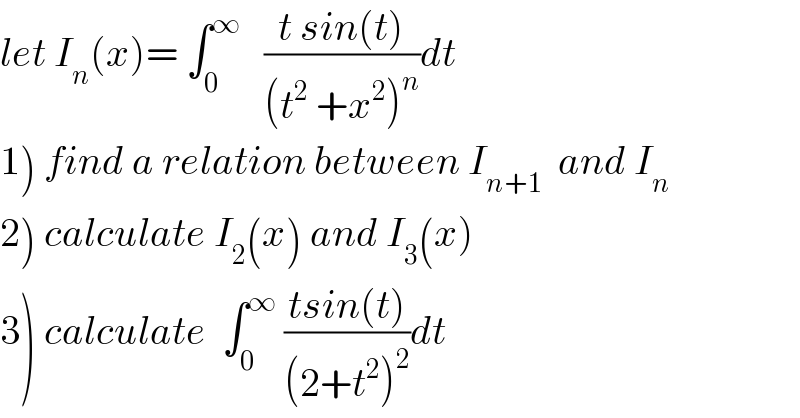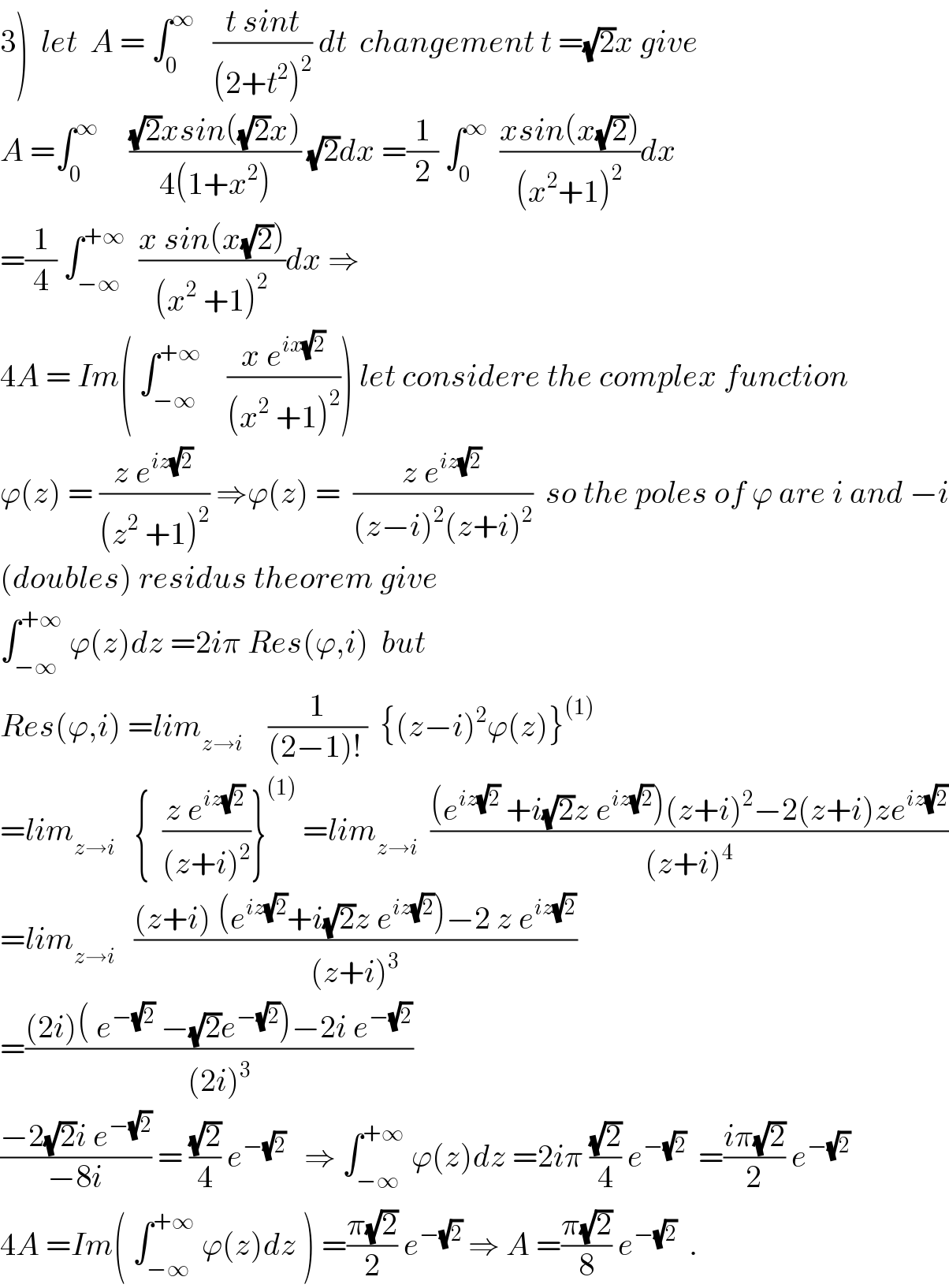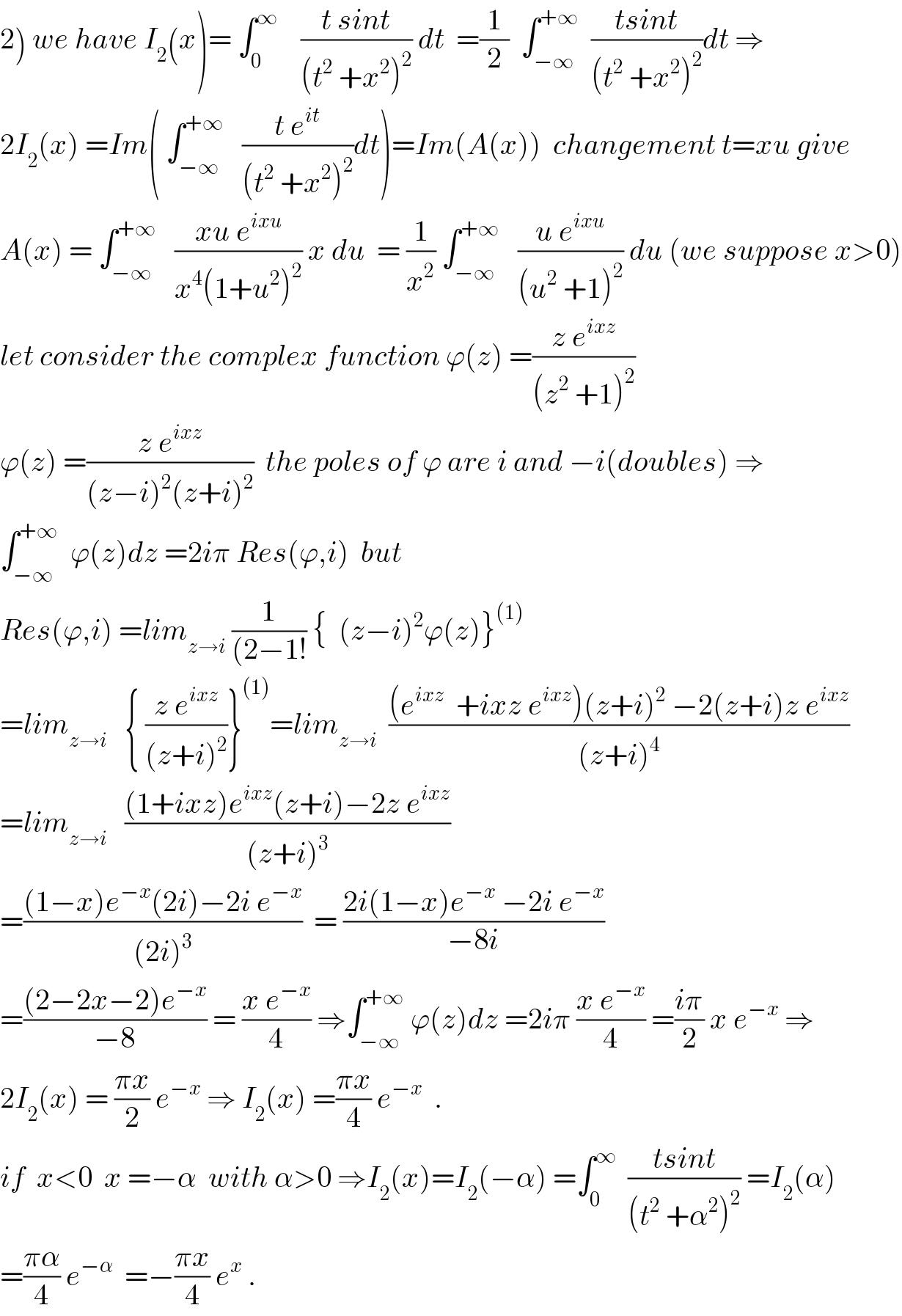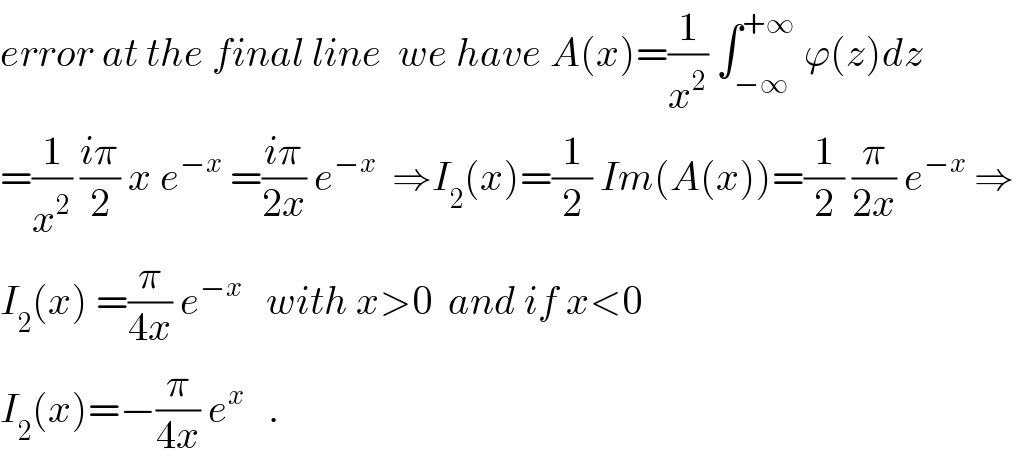
Question and Answers Forum
Question Number 36187 by prof Abdo imad last updated on 30/May/18

Commented by maxmathsup by imad last updated on 15/Aug/18

Commented by maxmathsup by imad last updated on 19/Aug/18

Commented by maxmathsup by imad last updated on 19/Aug/18

